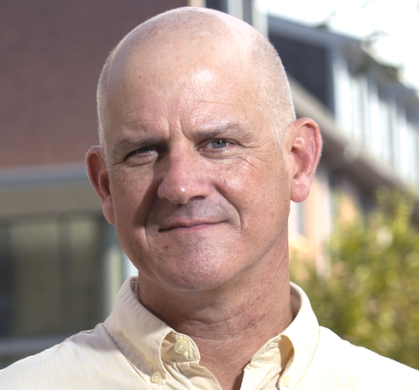Rutgers Lights a Way Forward
LETTER FROM THE EDITOR: The latest examples of how Rutgers is fulfilling its mandate as a land-grant university.

The hallmark of any great land-grant university such as Rutgers is translating research discoveries and educational breakthroughs into solving intractable problems for its host state, the nation, and even the world. From the discovery of streptomycin in 1944, which was the first antibiotic used to treat tuberculosis, to the first saliva-based COVID-19 test in 2020, Rutgers has made its share of contributions in making the world a better, safer place.
For the past five years, the Coastal Climate Risk and Resilience program, administered through the Rutgers Institute of Earth, Ocean, and Atmospheric Sciences, has deployed Rutgers research and uniquely prepared graduate students to help leaders of New Jersey’s coastal communities prepare for and recover from the damage of more frequent and more severe storms and floods—conditions linked with a rapidly warming climate. The students, steeped in interdisciplinary knowledge about everything from public policy procedures to a broad spectrum in the earth and marine sciences, provide practical advice to municipalities trying to develop “resilience,” or the means to protect themselves (“Shoring Up the Jersey Shore”).
The program is directed by Robert Kopp, who is one of the nation’s most respected climatologists. Kopp is also the driving force behind Earth 2100, an initiative to address climate change by using New Jersey and the metropolitan corridor of the Northeast and mid-Atlantic region as a laboratory for observing, tracking, and ultimately devising strategies to mitigate climate change, which is a priority of the Biden Administration.
Earth 2100 is one of the Rutgers 12 Big Ideas (“Thinking Big”). They are a dozen initiatives that will harness the best of the university’s academic, health care, and research expertise to find and apply innovative, practical solutions to problems such as inequities in urban public health and elder care, the abuse of artificial intelligence, inadequate pandemic preparedness, economic exclusion that limits urban entrepreneurship, and the misuse of forensic science in administering justice.
“By leveraging Rutgers’ standing as an academic, health, and research powerhouse,” says Rutgers president Jonathan Holloway, “our university is poised to lead the nation and world toward a more just and sustainable future. These projects could not come at a more critical time. At what may seem to be a dark hour in human history, Big Ideas promise to light a way forward.”
David W. Major is the editor of Rutgers Magazine.